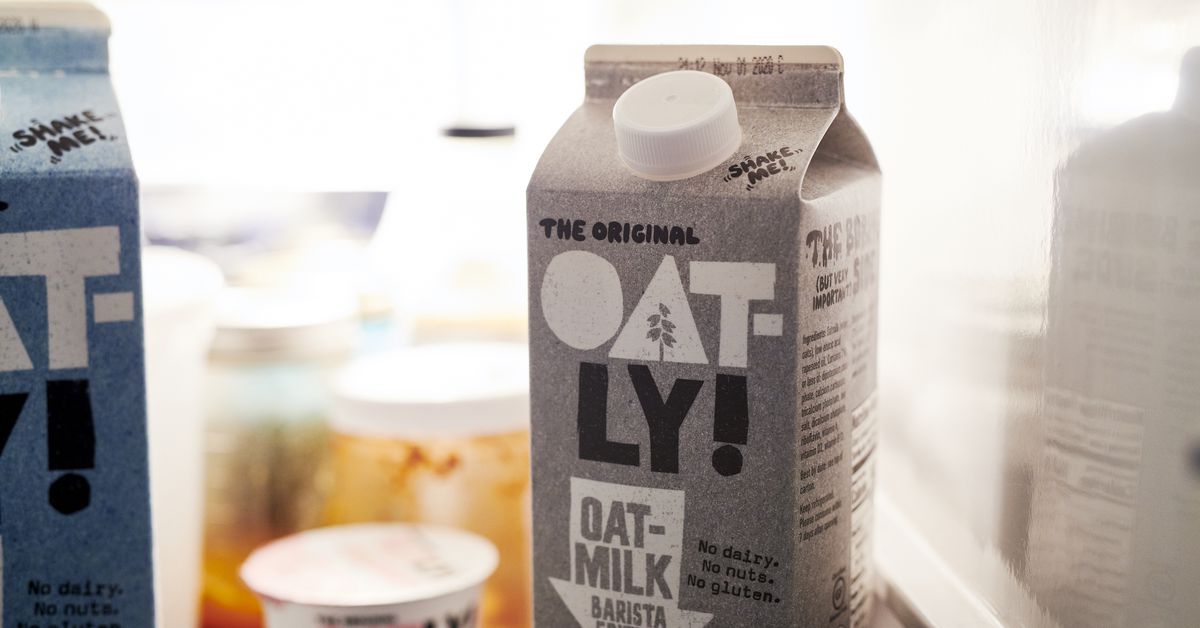Oatly investors should beware climate change
Source: The Verge added 20th Apr 2021Oatly is going public, so out of prurient interest, I picked up their registration statement. Did you know: a risk factor to Oatly’s business? Climate change.
In 2010, the Securities and Exchange Commission provided guidance about how to apply climate change disclosures — since it might be required in the risk factor section, among other places. And according to the SEC, investor demand for climate change disclosures has “grown dramatically.” The SEC is mulling over whether existing disclosures are good enough, and it has requested feedback from the public.
Oatly’s registration provides a nice demonstration of that interest: the risks of climate change laid out bluntly by a corporation.
“Our ability to ensure a continuing supply of high-quality oats and other raw materials for our products at competitive prices depends on many factors beyond our control,” the materials say. Well, yes, this is true for many kinds of agricultural products. There’s some hemming and hawing about what might happen if a supplier goes bankrupt or whatever. Fine. Then:
Additionally, the oats from which our products are sourced are vulnerable to adverse weather conditions and natural disasters, such as floods, droughts, frosts, earthquakes, hurricanes, pestilence and other shortages and disease, which can adversely impact quantity and quality, leading to reduced oat yields and quality, which in turn could reduce the available supply of, or increase the price of, our raw materials. The monocultures that we use are also sensitive to diseases, pests, insects and other external forces, which could pose either short term effects, such as result in a bad harvest one year, or long term effects, which could require new oat varieties to be grown.
This is the first time I’ve seen “monocultures” referenced in a regulatory filing. It’s been used three times, per the SEC’s search; “monoculture,” no plural, has been used about 80 times. It is something of a surprise to see this jargon — it refers to a lot of a single crop being grown on a large scale — in a registration statement!
If you are, like me, from farm country, “monoculture” pretty much just describes the farming as you know it. The idea is that it’s more efficient, more profitable, and easier to manage, letting farmers specialize in a specific crop, such as oats. It also means more pesticide use, and when pests arise, it’s easier for them to wipe out a shocking amount of plants.
Monocultures are a risk factor. Banana wilt, for instance, is tied closely to industrial banana production and the overwhelming number of Cavendish bananas that are planted. Rotating crops may help prevent the bacterial disease, though. In oats, crown rust, stem rust, barley yellow dwarf virus, oat smut, and other diseases are seen in North America.
But this isn’t what dropped my jaw. Instead it was:
There is also the concern that carbon dioxide and other greenhouse gases in the atmosphere may have an adverse impact on global temperatures, weather patterns and the frequency and severity of extreme weather and natural disasters. If such climate change has a negative effect on agricultural productivity, we may be subject to decreased availability or less favorable pricing for oats and other raw materials that are necessary for our products. Due to climate change, we may also be subjected to decreased availability of water, deteriorated quality of water or less favorable pricing for water, which could adversely impact our manufacturing and distribution operations.
North Dakota, Wisconsin, South Dakota, Minnesota, and Iowa are among the top US producers of oats — so events like the August 2020 derecho may screw up your oat milk. It destroyed 850,000 acres of crops in Iowa alone. Derechos are fairly normal in the plains, but the August 2020 one was notable for its scale and destruction. It’s possible that climate change will make storms like it more likely — one scientist told The Des Moines Register that “I strongly believe we’re going to look back in 10 years, certainly 20 and definitely 50 and say, ‘Wow, 2020 was a crazy year, but I miss it.’”
Happy investing!
brands: Alone Carbon Crown Extreme First It New One other Raw Materials WAS media: 'The Verge'
Related posts
Notice: Undefined variable: all_related in /var/www/vhosts/rondea.com/httpdocs/wp-content/themes/rondea-2-0/single-article.php on line 88
Notice: Undefined variable: all_related in /var/www/vhosts/rondea.com/httpdocs/wp-content/themes/rondea-2-0/single-article.php on line 88
Related Products
Notice: Undefined variable: all_related in /var/www/vhosts/rondea.com/httpdocs/wp-content/themes/rondea-2-0/single-article.php on line 91
Warning: Invalid argument supplied for foreach() in /var/www/vhosts/rondea.com/httpdocs/wp-content/themes/rondea-2-0/single-article.php on line 91
